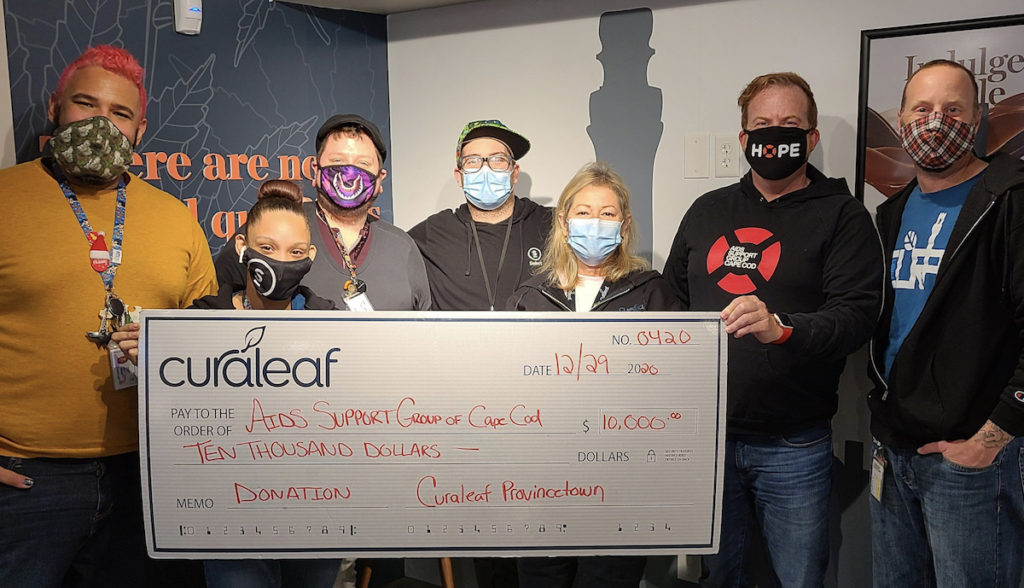TRURO — After a morning walk on Ballston Beach over the July 4th weekend, Heather Murray noticed her four-year-old Portuguese water dog, Maple, behaving strangely.

“She was just sort of staring past me while her head was wobbling,” said Murray. Her dog seemed unable to focus, and Murray worried she might be poisoned.
Her vet’s office in Wellfleet was closed, so Murray drove Maple to Cape Cod Veterinary Specialists in Dennis. Maple’s body temperature was two degrees below the normal range for a dog, and she was shying away from sudden movements. Dr. Kelsey McKenna determined that Maple had cannabis toxicity as a result of ingesting marijuana.
Dogs’ bodies process cannabis differently than humans’ do. Even at low doses, cannabis can cause dogs to leak urine, become sensitive to sudden movements, experience nausea, and walk “like a drunken person,” said Dr. Sadie Hutchings, veterinarian at the Veterinary Wellness Center of Provincetown.
At high doses, dogs can experience temporary paralysis and become very cold or hypothermic. There have been cases in which pets died from cannabis toxicity, according to the American Veterinary Medical Association, apparently because vomit entered the lungs.
McKenna said that she has treated cases of canine cannabis toxicity every year since 2015, when she began working at Cape Cod Veterinary Specialists, but that the number of cases has increased dramatically in the last five years.
“In the summertime, we can see anywhere from 2 to 10 cases a week of cannabis toxicity,” said McKenna, whereas five years ago, it was more like two cases a month.
The animal poison control center run by the American Society for the Prevention of Cruelty to Animals has also reported a large increase in calls related to pets consuming cannabis since 2019.
“It happens in pretty much every town, even in towns where you wouldn’t expect there to be marijuana on the street,” said McKenna. Cannabis “is just so ubiquitous now that every town in Massachusetts has a dispensary,” she said.
Hutchings said that people usually have no idea where their dog found cannabis. From the discarded stub of a joint to stray gummies, cookies, or tablets, nearly everything can be found on Cape Cod’s streets and beaches, and dogs are expert seekers.
McKenna said she has seen many cases in which poisoning occurred while dogs were home alone, often because edibles or even ashtrays were not stored safely out of reach.
On that July 4th weekend at Ballston Beach, Murray saw Maple rolling in something right next to the embers of a bonfire, she said. A discarded roach or dropped edible would have been inconspicuous next to the flotsam that already fills beaches.
“Fortunately, cannabis toxicity is one of the more forgiving toxicities,” McKenna said. In most cases it resolves on its own.
At the clinic, treatment for cannabis toxicity includes oral or intravenous hydration, treatment for nausea, careful monitoring of body temperature, and a calm, quiet space to recover.
McKenna said that, for dogs, the experience often amounts to “a really bad trip.” Maple was back to her normal dog self the next day, Murray said.
“I’m sure nobody wants to get a dog sick,” she said. “If you drop an edible, pick it up and dispose of it.”













